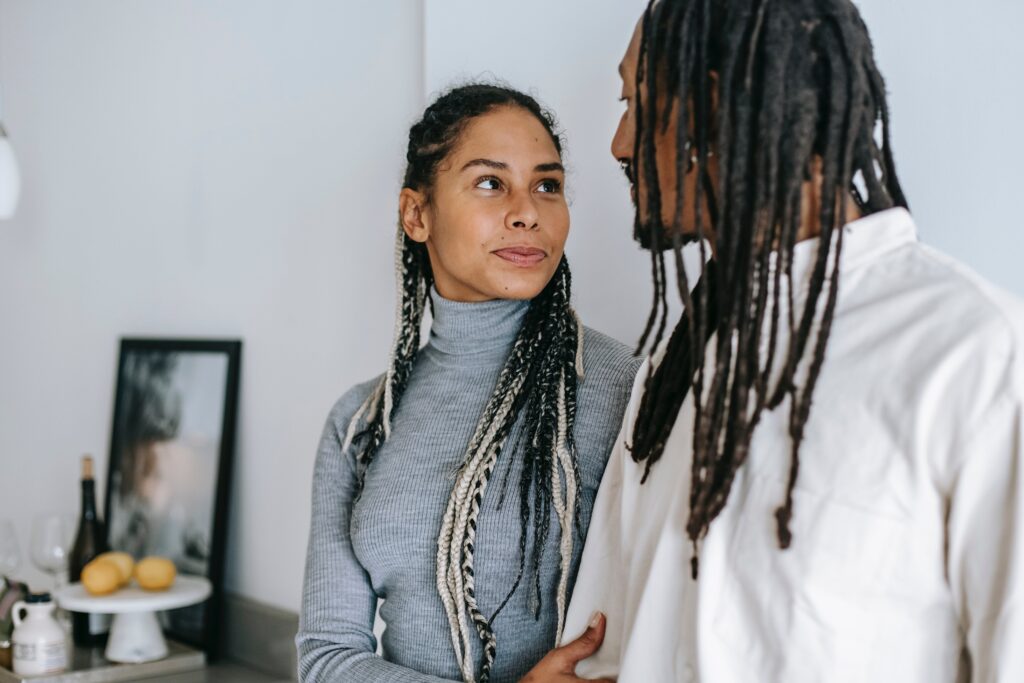Building A Strong Relationship: Dealing With Challenges as a Team

What makes a relationship strong? Before you answer that, consider Mexican artists Diego Rivera and Frida Kahlo. A passionate love story that started when the two met and discovered shared ideals about Mexican identity.
Even better, they were both artists with strong personalities. Their marriage? Well, it was marked by fiery arguments, infidelity, and intense artistic collaboration. Diego was involved with other women through their marriage, while Frida took several lovers.
The couple would fight rather publicly– through art. Frida once painted a portrait of herself crying with Diego’s face as a third eye, symbolizing the pain from their rough relationship. It came as no surprise that they divorced.
Then, they remarried in an interesting turn of events, showcasing a connection that exceeded societal norms. Some say that theirs was an unconventional but intense relationship.
So Is This It?
Is cheating, attacking each other publicly, getting divorced, then getting remarried, and sticking with the same toxic routine the makings of a strong relationship?
Well, it’s certainly not the most optimal route!
I, on the other hand, noticed something about Frida and Diego. They had the characteristics of what we all dream of in a relationship. Diego and Frida shared interests, worked together, and passionately loved each other.
And the bad? They also dealt with their relationship problems separately.
You may think it strange, but we do it all the time. For one reason or another, couples find themselves avoiding each other when faced with relationship challenges.
They would much rather deal with the issue themselves or act out solo, like Frida and Diego.
Why? Perhaps for the sense of empowerment that comes with dealing with a problem alone.
Sorry, To Burst Your Bubble But
That empowerment is short-lived. Yes, you solved the problem alone, but was it worth it? Was it worth feeling more alone than ever? Was it worth the disconnect from your partner? Was it worth the dynamic shift? Was it worth knowing that it will be like this going forward? I don’t think so.
Dealing with challenges together forces you to communicate. Therefore, you can share honest feelings, thoughts, and concerns better. You and your partner will feel heard and understood, building deeper trust in your relationship.
What happens when you overcome the challenge together? Well, it creates a shared experience and memory. You will probably develop a hundred inside jokes that help you reflect on that day positively. This, right here, is one of the ways you strengthen your emotional bond.
And perhaps the most important thing about facing challenges together is you don’t develop resentment from not knowing. It’s easy to resent your partner when you don’t understand where they are coming from.
It’s even easier to harbor negative feelings because you never resolve your issues. Working together can solve all this. No hatred, no passive aggressiveness, just understanding and love.
That’s what you should be aiming for.
Recognizing Challenges
Before you can deal with challenges, how do you know that you and your partner have problems? Women are often more intuitive. They can tell something is wrong because you are breathing a little off or have changed a small part of your behavior.
Men… are a different case. It’s not always so obvious for you to figure out there’s something wrong. But worry not; you have a cheat sheet below.
- Pay attention to changes in communication patterns. If your partner is less open and honest in conversation, it may signal a challenge.
- Be aware of changes in emotional intimacy. If you sense a growing emotional gap, it may indicate an underlying issue.
- Take note if disagreements become more frequent and intense or center around the same things repeatedly.
- It will be challenging, but pay attention to your emotional needs and whether your partner provides the support you require during stressful times.
- You may both be at fault for this, but consider whether the relationship has taken a backseat to other priorities. Perhaps the importance you both place on it has changed a lot. Though you are not fighting, this is a problem.
- You consistently avoid specific issues after one too many fights, and your partner probably does the same. This is not progress; it means you are uncomfortable and must address it.
- You’ve probably heard it before: the deep sign of defeat coming from your partner. Or maybe you’re the one who’s constantly sighing and saying, ‘It’s fine.’ If this happens often, reflect on whether you or your partner are frequently disappointed or if there’s a recurring theme of unmet expectations.
How to Deal with Challenges in Relationships
Effective Communication
I’ve studied communication for a few years, and it has taught me one important thing: You’re going to forget how to do it right. You will promise yourself to be better, then backslide multiple ways. But each time you try, you get a little better.
And you have to keep trying because communication is the cornerstone of any healthy relationship. Expressing feelings openly and actively listening to your partner fosters understanding and connection. I know a guy who lost his job, went home and told his wife.
Great move, right? Except they didn’t talk about it. Instead, he bottled his frustration until the strain eventually separated them. Things could have been different if they had just talked about it a little more and created a plan to deal with the financial strain and emotional stress.
Empathy and Understanding
I’ve always told people I’m not empathetic, but they disagreed. Admittedly, I did not know what empathy was. I always thought it was feeling someone’s pain regardless of who they were. I couldn’t offer that to strangers!
But I later realized that things were different when it came to my niece, mother, and partner. And it became easier to have these feelings by putting myself in their shoes. Empathy makes your partner heard and supported.
So the next time your partner is dealing with a personal crisis, listen to them imagining what it would be like to be in their shoes. You don’t want to be judged, you don’t want to be attacked, you don’t want to be alone. You want to be supported, you want to be understood, you want help and support.
So, offer the same.
Problem-Solving as a Team
It goes without saying, but you need to approach problems together. I’ve noticed this thing with men, whether they want to deal with issues alone. Most women can confirm this. It is not a healthy way to approach problems.
You may think you are sparing your partner, but you are just leaving them in the dark. It puts strain on your bond, and why shouldn’t it? You once shared everything, and then in your darkest time, you pull away and try to solve a shared issue alone.
It may hurt your pride, make you feel uncomfortable, and trigger an instinct to run away, but you need to approach challenges as a collaborative effort. Dealing with issues together fosters a sense of unity and shared responsibility, strengthening the foundation of the relationship.
Celebrating Wins
One of my favorite things about Gen Z workers is that they recognize small achievements. I worked with two who would hi-five each other every time they finished a task.
In addition, they would give each other little rewards for things like ‘keeping a positive mindset all day’, and ‘finishing your work without complaining.’ I thought it was cute. Then I saw how much of an impact it had on their mood going forward.
They would be more energized and positive, tackling new issues with a great mindset. I believe that’s what happens when couples celebrate small achievements. They reinforce a sense of shared joy and accomplishment amidst the tough times, contributing to overall relationship satisfaction.
Teamwork Triumphs: The Road to Lasting Love
The journey of Frida Kahlo and Diego Rivera reminds us that relationships can be as unconventional as they are strong. Despite fiery arguments, infidelity, and public battles through art, they showcased a connection that exceeded societal norms.
The question arises: Is this the formula for a robust relationship?
Not quite. While Frida and Diego shared interests and passionately loved each other, their approach to challenges was often solo, resulting in a rollercoaster of emotions.
Solo problem-solving may provide a momentary sense of empowerment for those seeking lasting love, but the long-term consequences could be detrimental.
The collective effort, open communication, shared victories, and unwavering support weaves the threads of a strong and enduring relationship. So, embrace the challenges together, communicate openly, and celebrate the wins – because teamwork truly triumphs in love.
Waithira Njagi is a seasoned wellness and relationship content writer with nearly a decade of experience. Her passion for helping others navigate the complexities of personal growth and connection shines through in her engaging and insightful writing.
With a knack for distilling complex topics into easily digestible pieces, Waithira's work is geared toward readers seeking guidance and inspiration on their journey to holistic well-being.
When she's not crafting engaging articles, you can find Waithira curled up with a stack of romance novels– always rooting for love to win– or enjoying quality time with her beloved family. Her dedication to spreading love and positivity is evident in everything she creates.
Waithira is here to remind you that life, much like their stories, is a tapestry of connections - to loved ones, and the endless adventures found in books.





